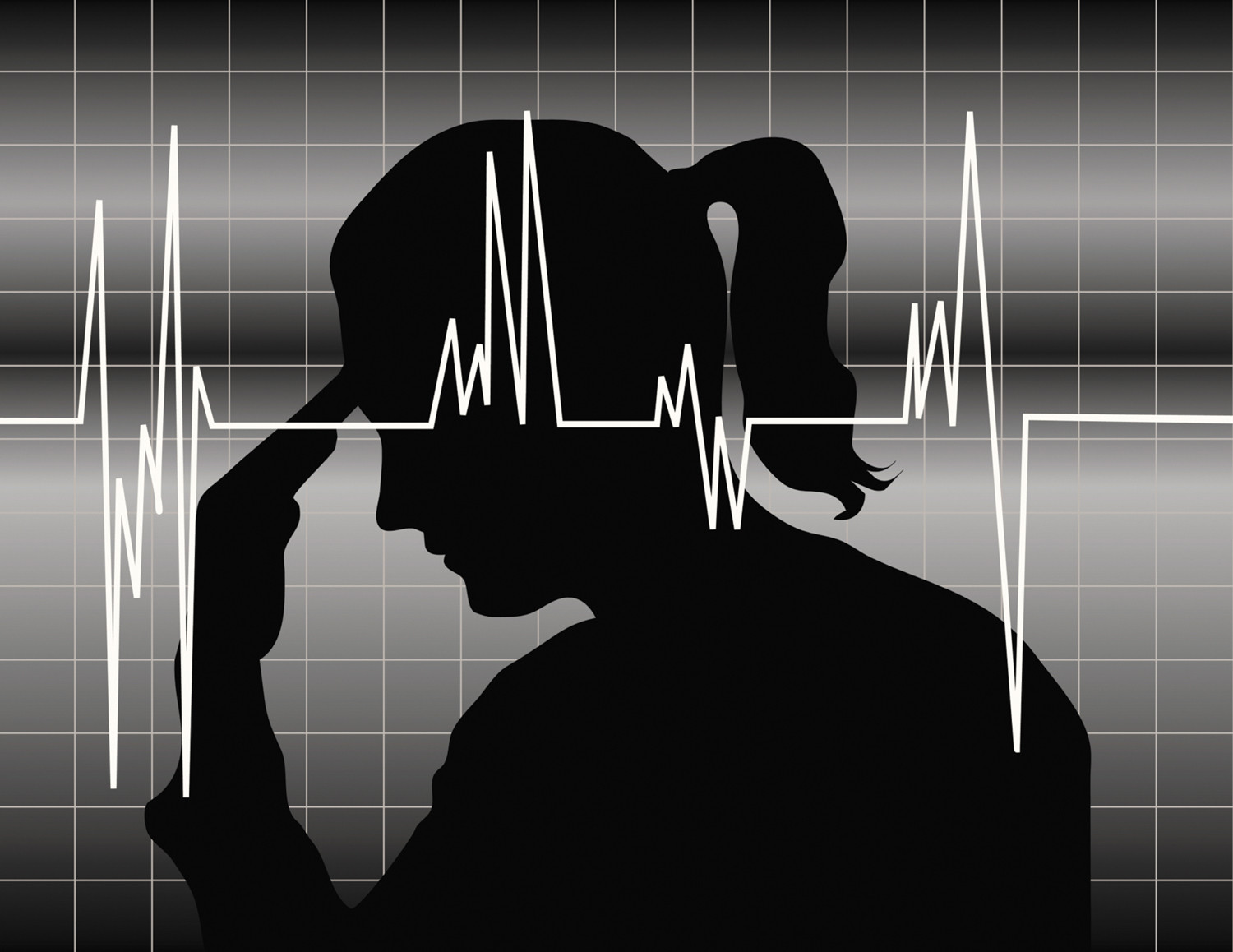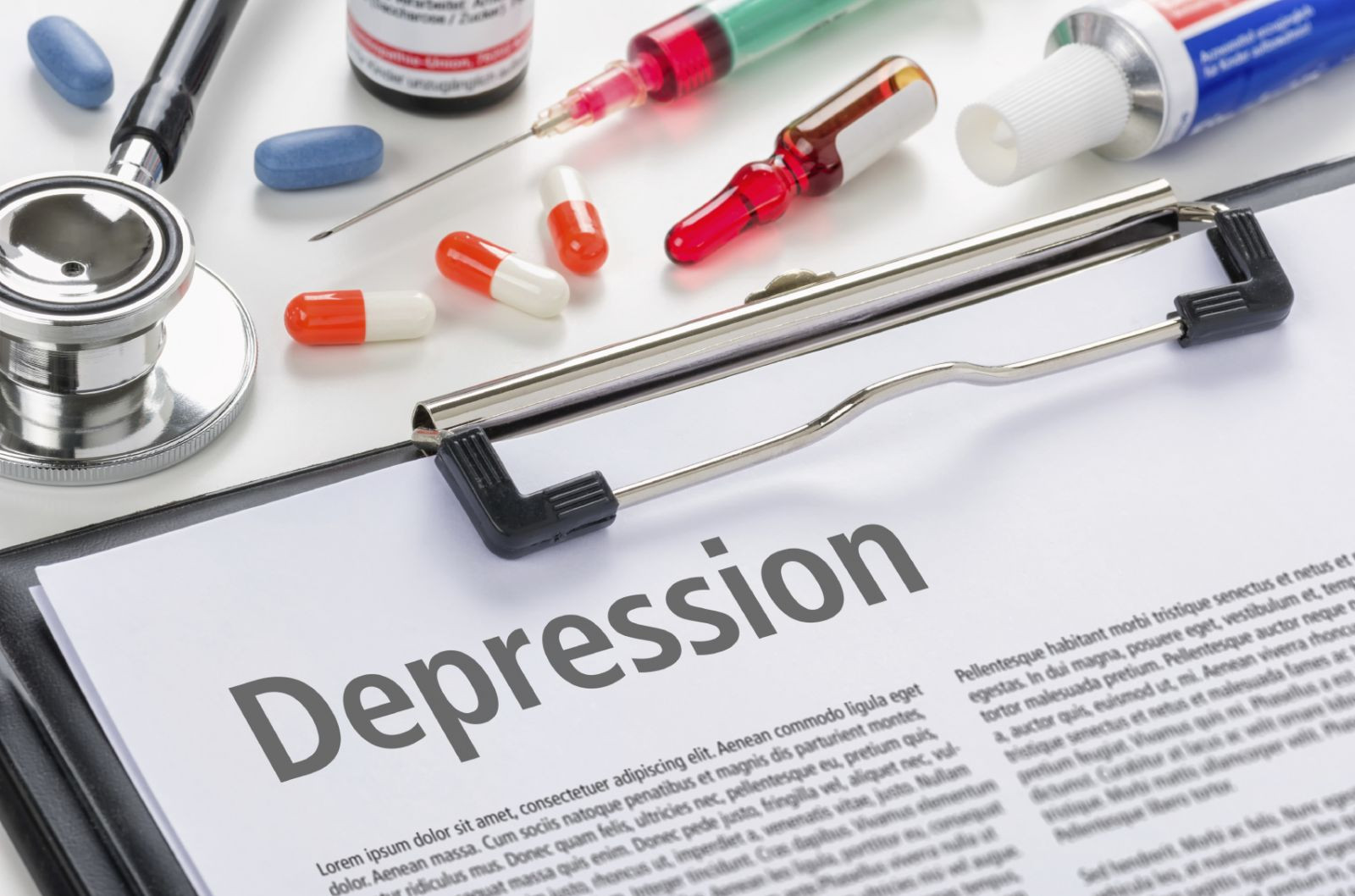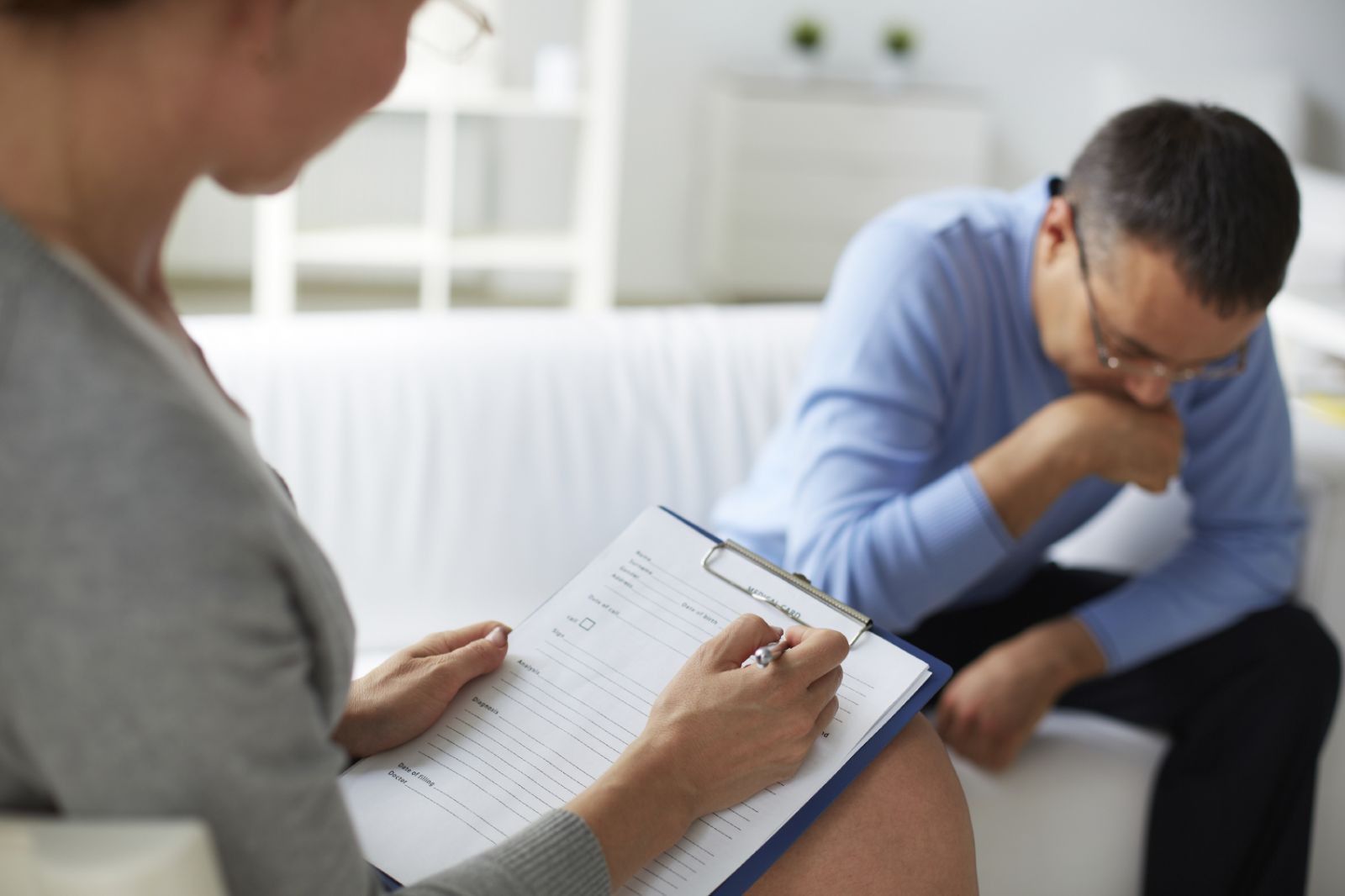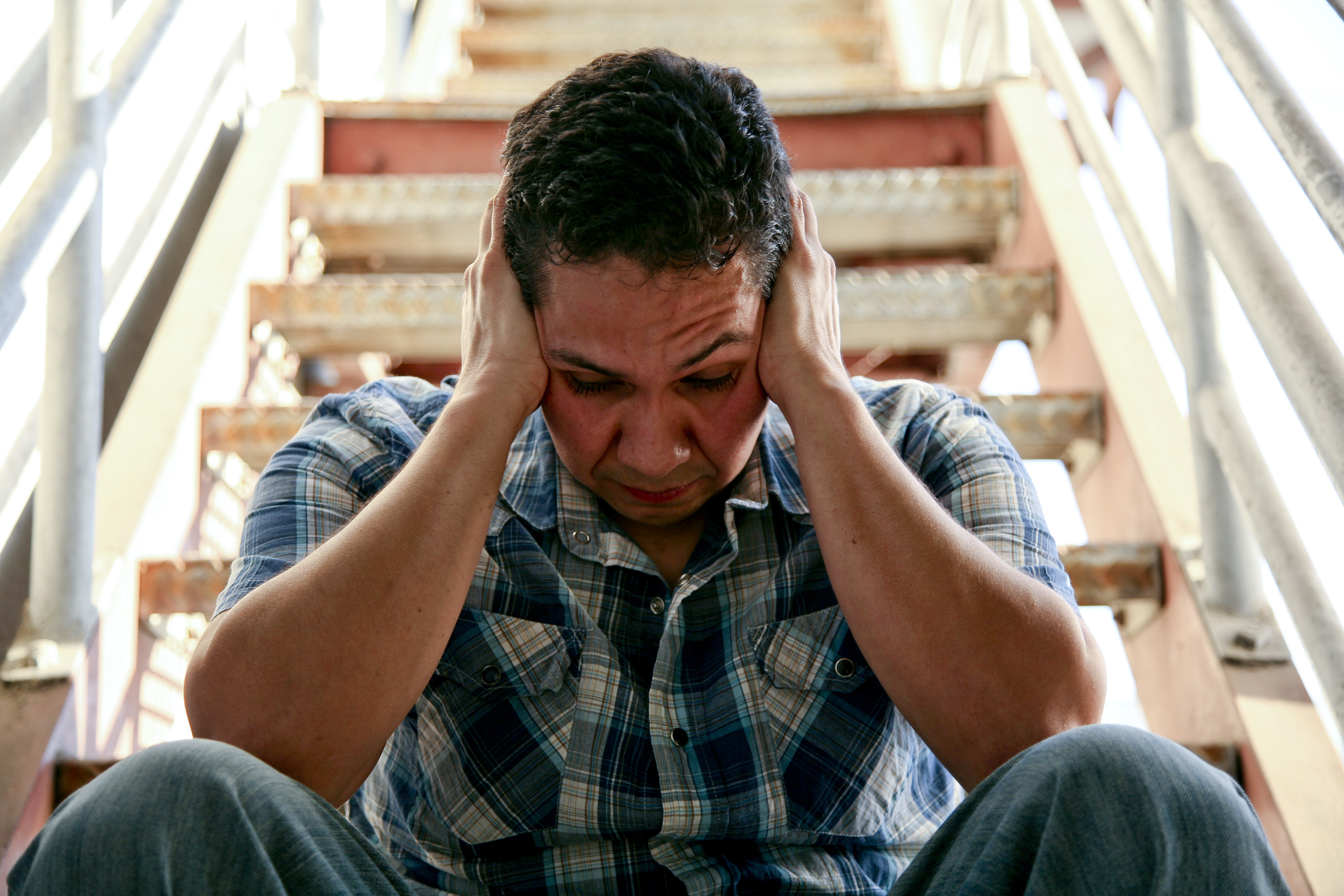
New thinking about plaque in arteries that feed the brain

Want to prevent shifting teeth? Maybe you need retainers

New evidence that polyphenol-rich foods help the heart

What you need to know about the new dietary guidelines

Food that’s healthier for people and planet can be cheaper, too

What are somatic workouts?

How to curb your stress eating

8 simple ways to reduce ultra-processed foods in your diet

How to spot Parkinson’s disease symptoms

Heart failure symptoms in women: How they’re different
Depression Archive
Articles
Why conquering stress can help your heart
Learning to deal with stress can lower your risk for anxiety, depression, and cardiovascular disease.
The more we learn about women's hearts, the more we realize that they are different from men's. One of the most dramatic differences is a rare heart condition called takotsubo cardiomyopathy, or broken-heart syndrome, that is nine times more common in women than in men. It has been cited as evidence that sudden emotional stress can actually cause death in some women.
Like a heart attack, takotsubo cardiomyopathy strikes suddenly with symptoms such as chest pain and shortness of breath; however, it does not involve clogged arteries. Takotsubo cardiomyopathy is brought on by a surge of stress hormones that literally bend the heart out of shape. As a result, when the main pumping chamber of the heart (the left ventricle) contracts, it balloons out, so it can't eject blood into the arteries effectively.
Bright light helps depression
Light therapy, either alone or in combination with an antidepressant, can alleviate major depression.
How can I help my daughter deal with her miscarriage?
Ask the doctor
Q. My daughter had a miscarriage a few months ago and since then she has been depressed and withdrawn. Do you know anything I can do to help?
A. Miscarriage can involve a difficult emotional recovery, and many women and their partners are surprised at the intensity of their feelings. Many women who have experienced a miscarriage feel that they have done something wrong. They may worry that the miscarriage resulted from stress or lifestyle choices they made during pregnancy. In fact, most miscarriages are the result of chromosomal abnormalities, structural abnormalities of the uterus, or maternal endocrine or autoimmune disorders.
3 health strategies to help you get through the holidays
Image: Thinkstock
Plan now to help prevent overeating, trips to the hospital, and depression.
The winter holidays are supposed to be a joyous time, filled with celebration. But they come with health risks, such as loneliness and depression, overeating, weight gain, falls in icy weather, foodborne illness, and heart problems. Here are ways to protect yourself while enjoying the season.
Will Prozac help my premenstrual depression?
Ask the doctor
Q. I've had some severe bouts of depression before my periods. I have done my own research and I am willing to try an antidepressant. What dosage of Sarafem or Prozac is usually given to treat this?
A. Selective serotonin reuptake inhibitors (SSRIs) are an excellent option for treating premenstrual syndrome (PMS) and premenstrual dysphoric disorder (PMDD). In fact, most physicians now consider them first-line therapy. Many different SSRIs have been studied, including the one you asked about—fluoxetine (Prozac or Sarafem)—and they all appear to be equally effective.
Confirming depression: When extra tests might help
Medical science is making good progress in unraveling the biological underpinnings of depression. Someday, these discoveries may lead to lab tests that can help identify or confirm depression and other mood disorders.
Right now, doctors and therapists rely on the symptoms reported by their patients, along with clinical expertise and experience, to diagnose depression and determine a course of treatment.
Sometimes, though, additional information can help distinguish depression from other problems. That's why your doctor might recommend any of the following tests:
10 questions to ask when choosing a therapist
Whether you get a recommendation for a therapist from your primary care doctor, a friend, or your insurance company, finding out about his or her background and training can help you feel comfortable with your choice. Here are some questions to ask before settling on a therapist:
- What's your training (i.e., what certification or degrees do you hold)?
- How long have you worked in this field?
- What kinds of treatment or therapy do you think might help me?
- What are the advantages and disadvantages of different approaches to treatment, including medications?
- How does the type of treatment you offer work?
- What are the chances that treatment will succeed?
- How soon should I start feeling better?
- How will we assess my progress?
- What should I do if I don't feel better?
- How much will treatment cost?
It's hard for a therapist to give precise answers to some of these questions, because no single therapist or type of treatment is best for everyone. But there are some general responses you should be looking for: The therapist should easily be able to describe his or her formal training and certification, for example. And while there's a tendency for mental health professionals to offer only the particular type of psychotherapy that they do best, it's a good sign if the person can describe the merits and drawbacks of different types of treatment, including ones he or she doesn't do.
Is your medication making you depressed?
When starting a new medication, keep a journal to track any new symptoms that develop. Note the time of day, date, and type of symptom you are experiencing. |
Be on the lookout for mood swings, sleeplessness, and anxiety when starting certain medications.
Can depression worsen RA symptoms or make treatment less effective?
Depression is fairly common among people suffering with rheumatoid arthritis (RA). Recent research suggests that depression may worsen RA symptoms and even make medications less effective. To date, the studies that indicate a connection between the severity of RA symptoms and depression have not been conclusive, so more research is needed. In the meantime, if you have RA and notice signs of depression, be sure to talk with your doctor.
If you think you’re depressed, don’t wait — find out
October 8, 2015 is National Depression Screening Day, which is the embodiment of Dr. Douglas Jacobs’s belief that screening for mental disorders should be no different than screening for other physical illnesses. If you think that you may be suffering from depression, take the first step and find out. Treatment can improve your mood, help you feel more connected, and feel more like yourself again.

New thinking about plaque in arteries that feed the brain

Want to prevent shifting teeth? Maybe you need retainers

New evidence that polyphenol-rich foods help the heart

What you need to know about the new dietary guidelines

Food that’s healthier for people and planet can be cheaper, too

What are somatic workouts?

How to curb your stress eating

8 simple ways to reduce ultra-processed foods in your diet

How to spot Parkinson’s disease symptoms

Heart failure symptoms in women: How they’re different
Free Healthbeat Signup
Get the latest in health news delivered to your inbox!
Sign Up











